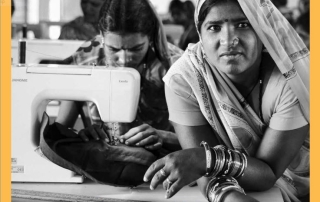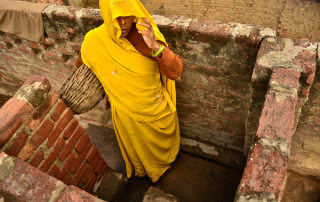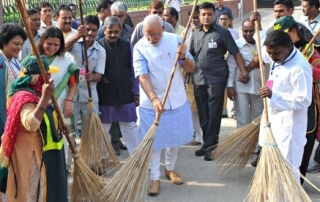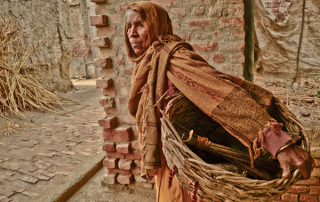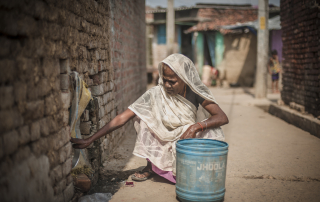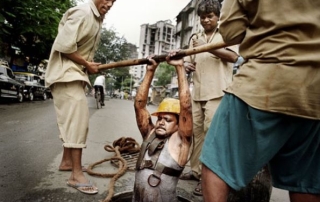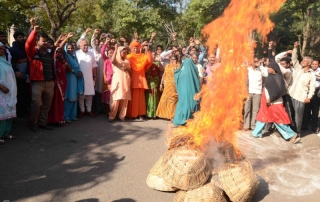HRW: EU should encourage India to protect Dalits
Human Rights Watch and Amnesty International’s 2015 reports raise serious concern over caste discrimination
UN agencies in India team up to fight caste discrimination
Convened by the United Nations Development Programme, six UN agencies in India including IFAD, ILO, UNFPA, UNICEF and UN Women are working together to help accelerate inclusion of Dalit and Adivasi issues and access to rights in national and state policy and planning processes.
Joining forces to rehabilitate manual scavengers – Government, UN Agencies, businesses and civil society
There was a strong will from multiple stakeholders to help rehabilitate former manual scavengers at the ‘National Consultation on Rehabilitation of Manual Scavenger’s and Role of the Government, UN agencies, Public and Private Sector, CSR and Civil Societies’ consultation held in New Delhi.
Indian Prime Minister Modi takes a sweep at caste
October was a month of headlines on India’s Prime Minister, Narendra Modi, asking the nation to rise above caste divides and telling every Indian to pick up a broom and sweep the streets. Modi’s drive to make India clean and to end the practice that one caste group is tasked with cleaning up after all the others, sounds promising. It remains to be seen, however, whether there will be true reform and political will to end caste discrimination, behind the hype.
HRW Report: Cleaning Human Waste: Manual Scavenging, Caste, and Discrimination in India
Important new report, Cleaning Human Waste: "Manual Scavenging," Caste, and Discrimination in India, released by Human Rights Watch. Press Release from Human Rights Watch: India: Caste Forced to Clean Human Waste
Indian Minister says that manual scavenging persisists and the implementation of the manual scavenging act is being monitored
In a written reply to the Indian House of Parliament (Lok Sabha), the Indian Social Justice and Empowerment Minister, Thaawar Chand Gehlot, said that the practice of manual scavenging still persists in various parts of the country. He added that because previous laws banning the practice had proved inadequate, parliament had enacted the Prohibition of Employment as Manual Scavengers and their Rehabilitation Act, 2013, the implementation of which is now be monitored.
A landmark judgement in the fight to eradicate manual scavenging
The Indian Supreme Court has ruled that the continuance of manual scavenging in the country is in blatant violation of Article 17 of the Constitution of India by which, “untouchability is abolished and its practice in any form is forbidden”. The court was emphatic about the duty cast on all states and union territories “to fully implement the law and to take action against the violators”.
New Manual Scavenging Legislation: New Hope and New Challenges
India is introducing new manual scavenging legislation meant to eradicate the humiliating practice of manual scavenging, which perseveres despite being outlawed for decades. Indian civil society are welcoming the initiative to introduce new legislation, but are flagging that the proposed draft legislation is missing critical necessary aspects that must be included before legislation is introduced on the 6th December.

